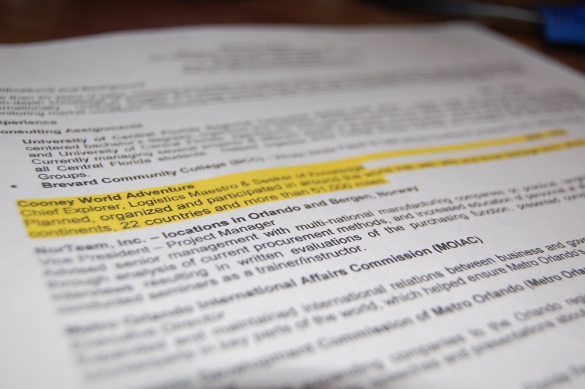At some point, the vast majority of RTW travelers end up coming home. Sure, there are some who give up stability for a life of vagabonding. Some RTW travelers love the road so much that they never want to stop traveling, finding ways to stay on the road for an indefinite period of time.
But most of us end up coming home and settling down again. Life on the road, while incredible, can get exhausting, and our natural instinct to settle down in some capacity eventually takes over. Just like going on the trip, there is some planning involved when coming home.
You need to ask yourself so many different questions before heading home, and we’re here to guide you through the process.
Where is home?

You never know how a RTW trip is going to affect you. Everyone’s situations are different, and what you do when you decide your trip is over is completely up to you. Some people have moved around most of their lives, with roots set down in several different places. Some have lived in one city their entire lives and have tons of family and friends in one place. Where you go when your trip is over largely depends on how deep your roots are.
Some choose to go back to the same place they were before their trip started. Some left behind a bad situation and are looking to start anew somewhere else. Others fell in love with a city during their trip and decided to become an expat and move to another country.
There’s no rule saying where you have to end up after your trip. Some find that this is a great opportunity to start over somewhere else. Some miss home terribly while gone and are all too excited to go back. Weighing the pros and cons are important, and as you know from the decision and planning aspects of your trip, it’s vital to make the decision based on what it is that you want to do.
A coming home fund
Coming home completely broke is probably not the best idea, even if you’re an 18-year-old coming home to go to college. You will have a lot more wiggle room than someone who is in their 40’s with a family, but it’s still unfair to rely on your parents too much, regardless of age.
If you’ve managed to save enough money for a RTW trip, then you are probably disciplined when it comes to money. As you know from reading the planning section of our site, it’s pretty important to have a coming home fund. When you are saving for your trip, this should be part of your budget. If you didn’t plan for this, then you might want to think about coming home a little bit earlier than planned.
Everyone knows their limits when it comes to money, and if you’ve managed to save for a RTW trip, then chances are you know what you’re doing in the budgeting department. When we came home from our RTW trip, we had 4 months worth of bare-bones living expenses saved up in case our employment situations fell through. We needed almost all of that as we did have an employment crisis, and this afforded us the opportunity to live on our own and not have to move in with Mom and Dad at 30+ years-old.
Employment
Finding a job isn’t as bad as it was a few years ago, but it’s not like it was a decade ago either. If you are one of the lucky ones to have been granted a sabbatical or leave of absence from your job, then count your lucky stars (and make sure you have it in writing). If you are going to need to find a job upon returning, then you may want to try to line something up before coming home.
Having access to your resume is important, so make sure you plan for this before leaving. If you bought multi-stop plane tickets and know your end date, then start putting some feelers out there a few months before you come home. Keep an eye on different sites and contact everyone in your network to see what opportunities are out there. While it’s not the first thing you want to be doing while you’re traveling, taking a few hours out of your week to look for a job isn’t going to kill you.
How to deal with the gap in your resume

One of the biggest myths of RTW travel is that the gap in your resume will hurt your job chances. It is true that a gap in your resume used to be a big no-no, but it is becoming more and more common, even in the United States. With organizations like Meet, Plan, Go!, career breaks and sabbaticals are becoming more accepted.
There have been record unemployment rates since 2008, so you won’t be alone with a resume gap. Many have been at home and collecting unemployment for months, or even years, while looking for a new job. If you have a gap because of international travel, highlight that on your resume. If you worked at all while gone, mention it. If you volunteered, talk about it. If you learned a new language, say so.
A RTW trip teaches a plethora of skills that are transferable to certain jobs, so make sure you play those up like you would anything. A RTW trip is a form of education, and you no doubt learned tons while on your trip. A cover letter is a great place to devote the time to talking about your experiences. Add a paragraph about your trip. What do most employers look for when paging through a pile of resumes and cover letters? They’re looking for someone to stand out. What better way to stand out than to have an experience that only a tiny percentage of other people have?
Housing
What city you end up living in will largely decide what your housing situation will be like when you return. We were lucky enough to find friends to rent our house while gone. We pared down quite a bit, but we were able to move all of our belongings into our basement. This made for a pretty seamless transition back home. We came back to our house with all our stuff.
Many are not as lucky. If you are moving back to the same city you used to call home, then it should be easier. You can set something up from the road and move in shortly after you get home. You can stay with family or friends for a short time while you work out your living situation. There are places that offer short term rentals, which is also a possibility. You have lived on the road for a while now, having all your belongings in a backpack or suitcase, so this shouldn’t be too much of a transition.
Whether you decide to buy or rent is completely up to each individual. Many RTW travelers hesitate to buy since they don’t want to be tied down. Some are ready for some stability after being a vagabonding traveler during their trip. It’s all personal preference, and what you do is all up to you.
Transportation
Again, where you live will depend on if you need a car or not. We live in St. Louis, which is about the least friendly public transportation city in the US, so a car was a necessity for us. We luckily worked out a deal with my in-laws where they drove my car while we were gone, picking up partial payments. It was worth it to us to pay a monthly fee while gone to still have a nice car when we returned.
If you know you are going to need a car immediately upon your return, then get on it before you come home. Have family or friends keep an eye out for you. Since you won’t be able to go look at cars yourself while you’re gone, think about a way to take care of this before you leave. I know it’s tempting to sell your car for the cash before taking off on your trip, but if it’s an old car that isn’t really worth much but still gets around just fine, it might be worth it to put it in storage until you return.
There are decisions galore to make when planning a RTW trip. From making the initial decision to deciding on RTW tickets vs. point to point to travel insurance to what type of electronics to bring, a RTW trip is rife with decisions. Coming home from a RTW trip and throwing yourself back into society is no different. If you think about and plan for these things before you leave, it will make the transition back into life much, much easier.
[more link=”https://www.bootsnall.com/rtw/reverse-culture-shock.html”]Next: What is Reverse Culture Shock?[/more]